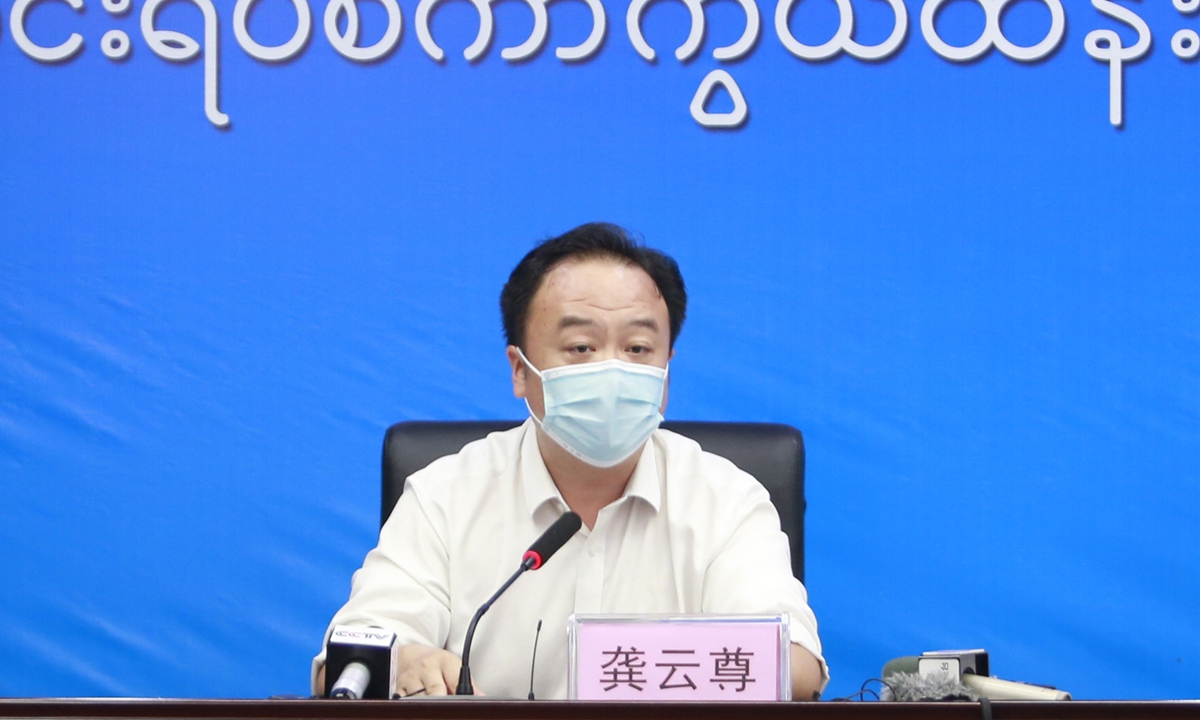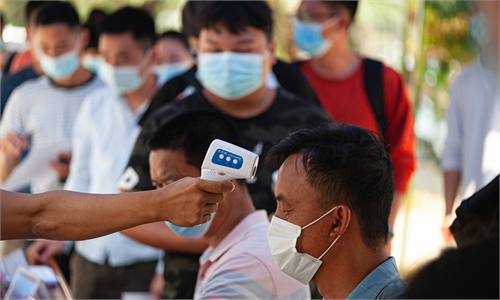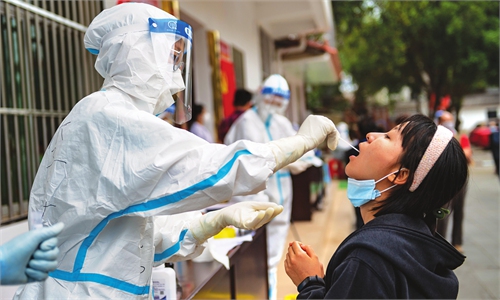Chinese officials risk losing jobs if they fail in COVID-19 control. Sack of Ruili Party chief is proof

Gong Yunzun Photo: cnsphoto
Gong Yunzun, Party chief of Ruili, Southwest China's Yunnan Province, has been dismissed from his post for serious negligence in epidemic control, where more than 100 local infections had been reported so far in the latest flare-up.Unlike politicians in the West, where few need to shoulder responsibility when anti-epidemic work fails, Chinese officials risk losing their careers if they fail in epidemic control work. Gong's dismissal is the latest example.
Gong, 46, had the main leadership responsibility for three outbreaks in Ruili in over six months, especially the latest flare-up that severely damaged the overall situation of national and provincial epidemic prevention and control work, said a Yunnan Daily report on Thursday.
Prior to his dismissal, Gong attended multiple press conferences on the government's anti-epidemic work, including one on Wednesday.
Meanwhile, the Party chief of Yunnan's Dehong Dai and Jingpo Autonomous Prefecture, under which Ruili is administered, was also replaced.
Ruili reported 11 new confirmed cases and one silent carrier on Thursday, bringing the total local numbers of local confirmed cases to 76 and local asymptomatic cases to 25.
The China-Myanmar border city came under the spotlight after new COVID-19 cases were detected on March 29, six months after a wave of cases hit the city in September 2020.
Since the rebound, inspection stations along the China-Myanmar border in Ruili have implemented comprehensive control on illegal byways.
By expanding the number of stations along the border roads and increasing the frequency of night patrols, frontier inspection stations are ramping up efforts to prevent cases of the virus from being brought in via illegal entry, the Global Times learned from local inspectors on Thursday.
Xu Leibin, director of the Comprehensive Office of the China (Yunnan) Pilot Free Trade Zone, who leads the group on duty at the No. 66 border post in Jiexiang county, said that the group has adopted a variety of high-tech means to guard the border.
A village party secretary in Jiexiang told the Global Times that 300 of the 4,820 people in its village had cross-border marriages. The border, which is lined by ridges, bamboo groves and ditches, typically sees frequent traffic among border residents, leading to great pressure for epidemic prevention and control work.
With a population of 300,000, Ruili has launched two rounds of citywide nucleic acid testing, with the most recent one conducted on Tuesday. As of 6 pm on Wednesday, about 354,000 samples had been collected, authorities told a press conference.
Ruili also rolled out a mass vaccination drive across the city on Friday, which was temporarily suspended on Tuesday due to the second round of mass testing.
Many places in China had punished officials who failed to perform their duties during the epidemic, including Central China's Hubei Province, Henan Province and Northeast China's Heilongjiang Province.
In January, Heilongjiang Province held 16 officials accountable for being slack in anti-epidemic control work, including Wang Shumi and Zhao Guoli, two deputy heads of Wangkui county, the epicenter of the outbreak at the time.




